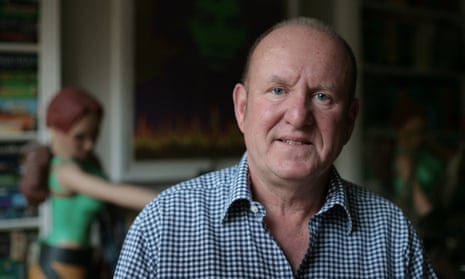The founding father of the British games industry, who helped bring Dungeons and Dragons and Lara Croft to the world, is to open two free schools aimed at preparing pupils for the digital world.
Ian Livingstone, who co-founded Games Workshop, which became one of the world’s biggest games companies, is promising students the latest in technology and creative thinking, including Dragons’ Den-style competitions to start up mock companies at school.
The Livingstone Academies will open in Tower Hamlets, east London, and Bournemouth under the Aspirations Academies Trust, offering 3,000 places and an education rooted in science, technology, engineering, arts and maths (Steam).
Livingstone, who left grammar school with one low-grade A-level and was advised to get a job in a garage, led a government review of digital skills in England in 2010 which concluded that poor quality IT teaching in schools was an obstacle to growth. It resulted in a new enthusiasm for coding in classrooms.
On Friday, Livingstone urged fellow digital entrepreneurs to follow him into education. “The arts and sciences should no longer be a question of either or – and to further this I’m delighted to be opening two free schools to embed digital creativity in future generations of our society.
“It is the combination of computer programming skills and creativity by which today’s world-changing companies are built.”
Livingstone’s educational ventures are among 22 new free school applications to be approved by the Department for Education (DfE) which has set itself the challenging target of 500 additional free schools by the end of this parliament. There are 380 already open.
The race is on to create sufficient school places to accommodate the population surge coming through the education system. The government says the 22 schools announced on Friday will provide 18,000 more pupil places and the 500 free schools will provide 27,000 places. The government’s own figures suggest an extra 900,000 pupils are expected by 2023.
Becky Francis, the professor of education at King’s College London, called for more research into outcomes at free schools. “Given the government’s commitment to expanding the free school programme we need urgently to explore their quality and outcomes for pupils, and, given changes in the programme over time, whether indeed free schools are distinctive from other schools in either content or origin.
“Evaluations remain difficult at this stage as few have been open long enough to produce attainment data.”
The government also announced it would launch a property arm to help identify and secure new sites and buildings for free schools. Finding an appropriate site is often the biggest obstacle in opening free schools. Signalling its intention to speed up the process, the DfE said an advisory group is being set up including Michael Strong, former executive chairman of the CBRE commercial property and real estate services group.
Among the other free schools announced on Friday are an Islamic faith school in Harrow and a Christian school in Enfield, both in north London, and a school in Smethwick in Birmingham, which promises to throw out the traditional model of lessons followed by homework and introduce the reverse.
